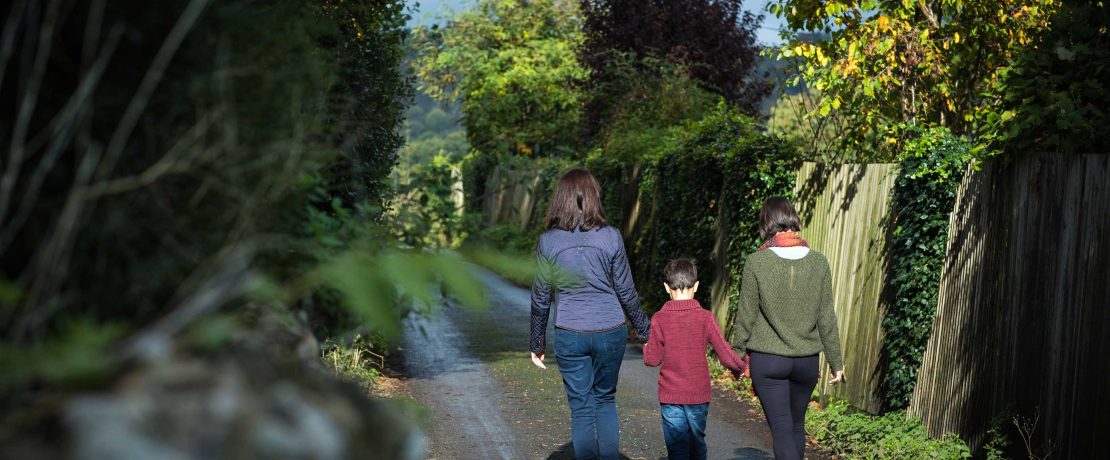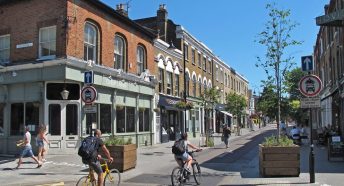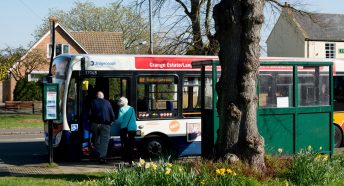Greener transport for all: a low carbon countryside
The government is writing a plan for how to cut carbon from our transport system to address climate change. They’re asking for public opinion, and we have some proposals.
There are lots of things that will help to reduce the carbon released by the ways we travel and address climate change. Anne Robinson, CPRE South Yorkshire member and transport campaigner, and Chris Hinchliff, our rural economy and communities officer, share what can be done and how we can all ask the government for change.
Why does transport matter to the climate?
Transport accounts for a huge chunk of carbon emissions. It’s the UK’s biggest single cause of climate change, accounting for a third of the damage – just think about those emissions from ships, planes and cars. And the future doesn’t look good – unlike so many areas, the climate change impact of transport is getting worse, not better.
It’s clear that something needs to change. So there’s a big debate on how we can ‘decarbonise’ our transport system – which in plain English means ‘how can we get about without releasing lots of greenhouse gases?’
We want to see the government stop these out-of-control emissions with two key steps:
- Establishing a legally-binding upper limit on transport greenhouse gas emissions
- Laying out a clear plan for how much we need to reduce emissions each year to meet this target.
And we can help! We have some pretty clear ideas about how emissions can be cut.
A vision for low-carbon rural travel
It can prove hard for rural residents and visitors to decrease their transport carbon footprint. Bus services have been cut, walkers and cyclists can feel intimidated by speeding drivers, and the closure of shops, post offices and schools has left people reliant on the car – some when they can’t afford it.
So what would low carbon rural travel look like? Here’s our vision for a decarbonised future for transport in the countryside.
Firstly, we’d like to see less need to travel. Long journeys for the weekly shop could be replaced by a delivery a week to a collection point with refrigeration in a village pub or hall. The commute to work or college could be replaced on some days by working from home, or from a community rural workspace with high-quality digital connections.
And, when there is a need to travel, it should be possible to go car-free. We want to see a national cycle network linking villages to towns and towns to cities with safe cycle lanes. This might sound like a major piece of infrastructure work, but some could begin right now. Slower road speeds, quiet lane networks and improving electric bike infrastructure to help with those longer or hilly journeys would all be great places to start.
Affordable, reliable, green: public transport for all
For journeys not possible on foot or by bike, we want to see low-carbon shared transport as the alternative. Mobile phone apps and smart ticketing for combinations of community transport, car-sharing and on-demand or regular bus services can all play their part. Car parking charges and road pricing in the form of a mileage-based eco-levy can subsidise these local services.
Some car journeys will of course continue, and we’re welcoming the move towards electric vehicles. To support this, we’re calling for a comprehensive roll-out of electric charging points in rural areas.
Devastating though it’s been, coronavirus has shown us how quickly we can change our travel habits – benefiting nature and our wellbeing and cutting carbon. Many of us have already started doing some of the things we’re proposing. So it’s time. We want to tell the Department for Transport that we want them to make long term commitments to better travel and cut transport carbon emissions forever.
How you can play your part
Here’s where you come in. The government is writing a plan for decarbonising our transport system, and they’re asking the public for input. It’s a great opportunity for making the case for better ways to travel in the countryside that can reduce traffic and carbon emissions, give us peaceful lanes and safe high streets and cleaner air and healthier lifestyles.
Here at CPRE, we’re telling the government the changes we want to see, but we need as many people as possible to add their voices and give the government an unmistakeable message on the need for investment in cleaner, greener ways to get around our countryside.
You can tell the government the ideas you want to see on their submission form. To help you out, we’ve written a handy list of the key policies that we’re calling for. The closing date is 31 August 2020, so don’t delay!










